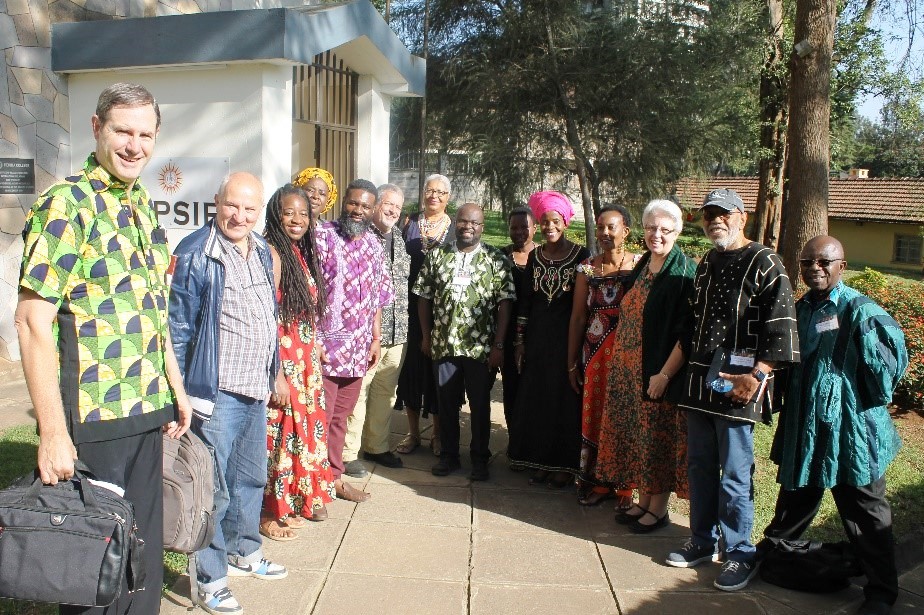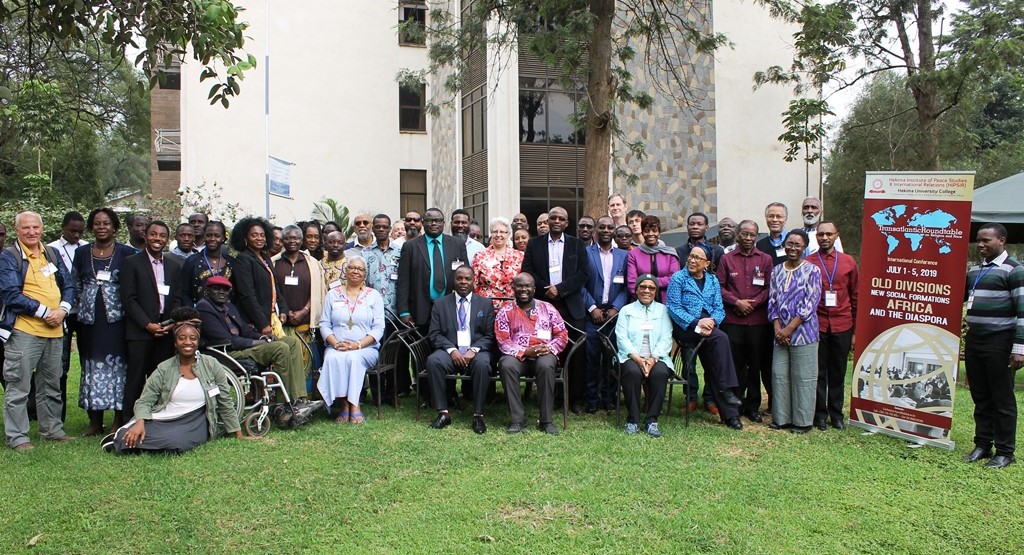
Some of the participants during the TRR conference during the Africa wear day TRRR Conference
The need to organize this conference arose from the fact that a number of African countries that had transited from periods of violent conflict to relative peace were grappling with actualizing national healing and reconciliation, which are essential to democratization processes and sustainable peace.
The general objective of the conference was to therefore stimulate strategic responses to challenges of national healing and reconciliation in African countries such as Kenya, Liberia, Sierra Leone, South Africa and Rwanda among others while looking at diverse policy formulation and implementation opportunities in addressing the needs around transitional justice.

TRRC participants having a group photo at HIPSIR gardens
The conference was held from 1st -5th July at Hekima Institute of Peace Studies and International Relations (HIPSIR) and it was divided into 2 sections; Pre-conference and the main conference.
The conference was attended by people from different cultural diversities and religions across the globe. On the first day, the guests were taken for cultural visits to Kibera and Eastleigh in a bid to learn more on what the local community CBOs are doing to promote peace and unity among people of different diversities. On the second day different local organizations working on peace in Kenya gave their presentations including Vocal KE, Footprints for change amongst others.
The conference brought together scholars from different religious and cultural backgrounds. Each day had a main theme discussed. For instance, on July 2nd the presentations were mainly from different local organizations on what they do for peace, on July 3rd, the main theme was on the East African perspective on religious diversities and conflicts, on July 4th it was on the immigration crisis and promotion of women empowerment and on July 5th the discussion focused on cultures of development, empowerment and agency.
